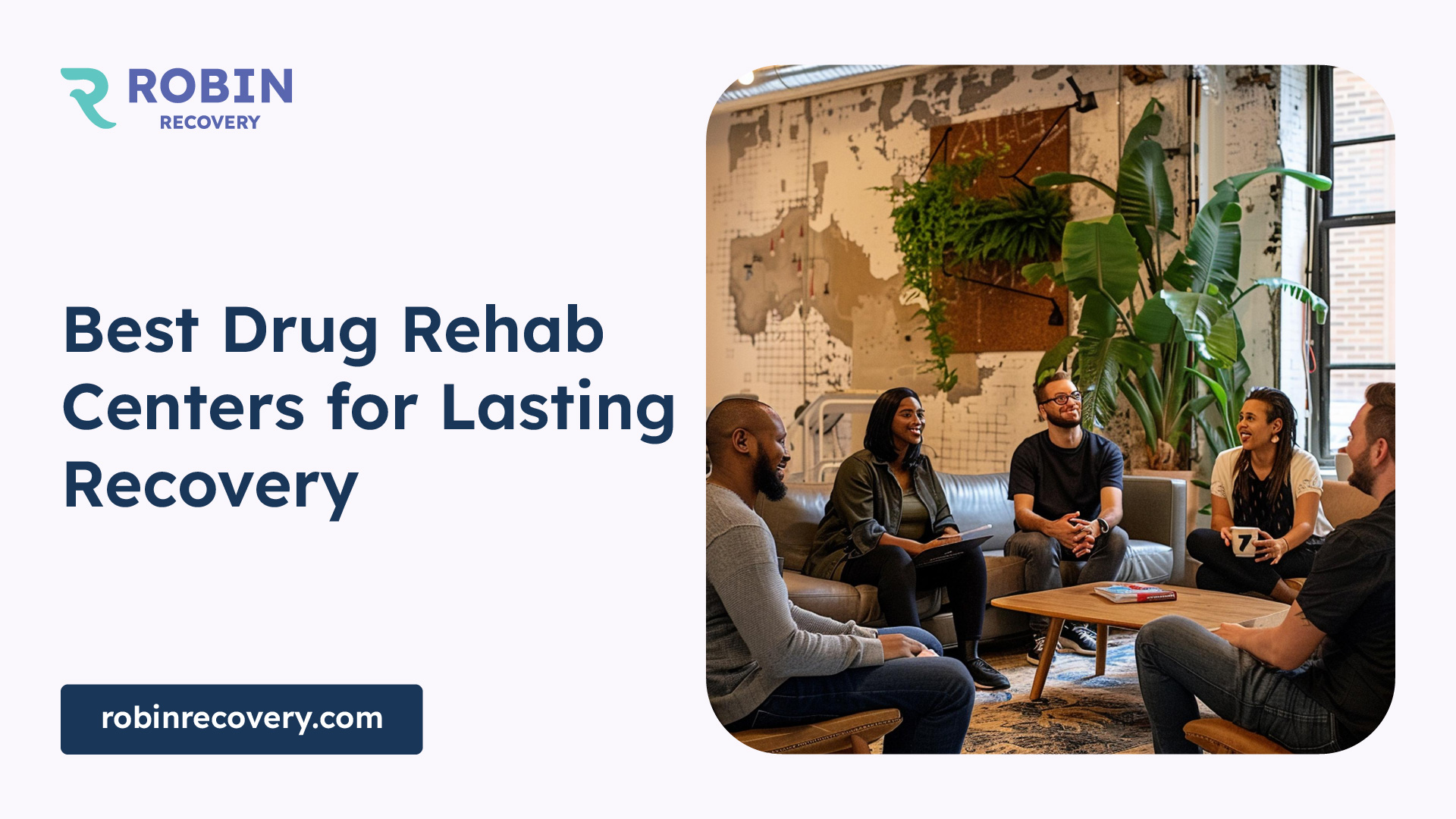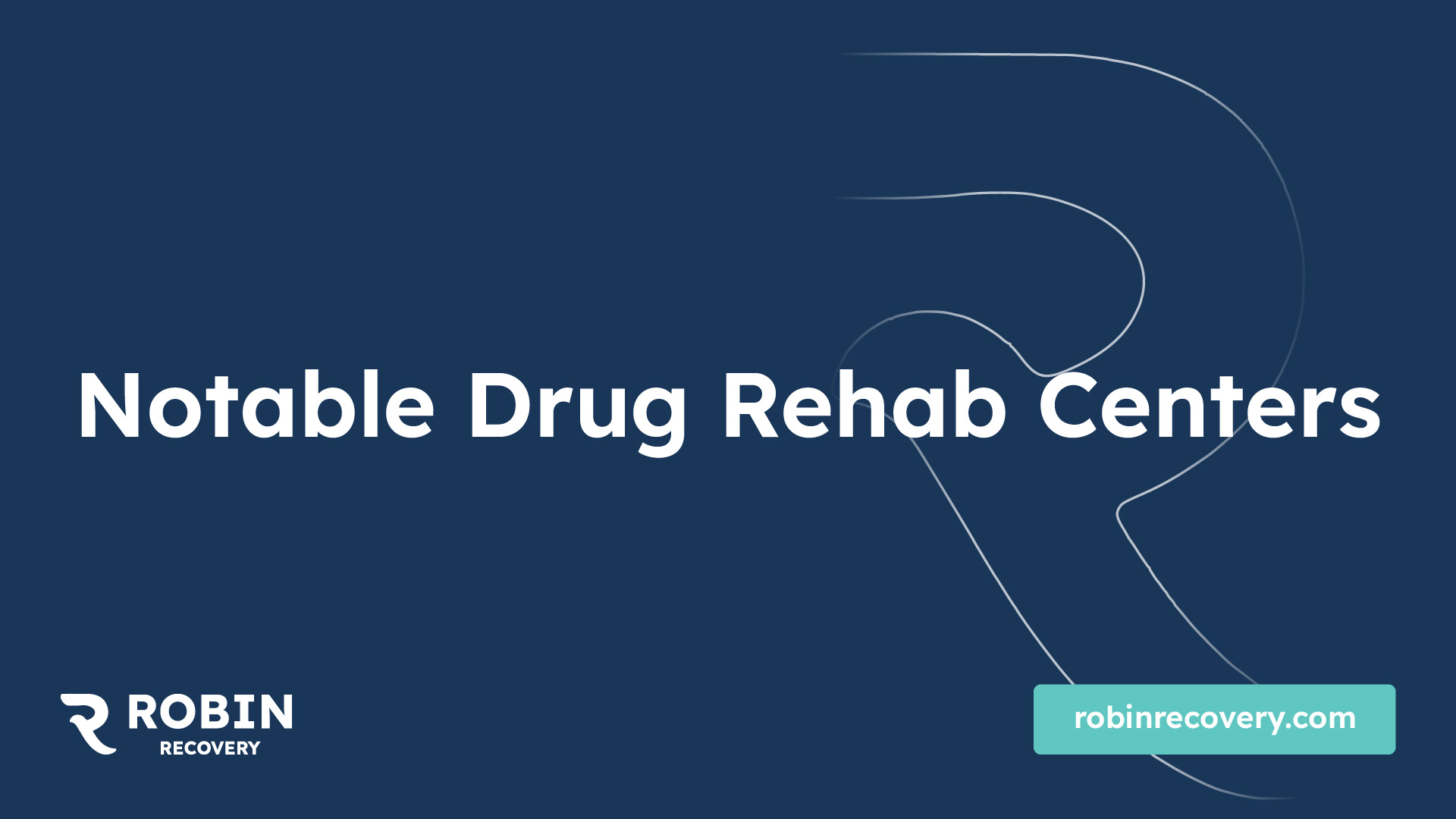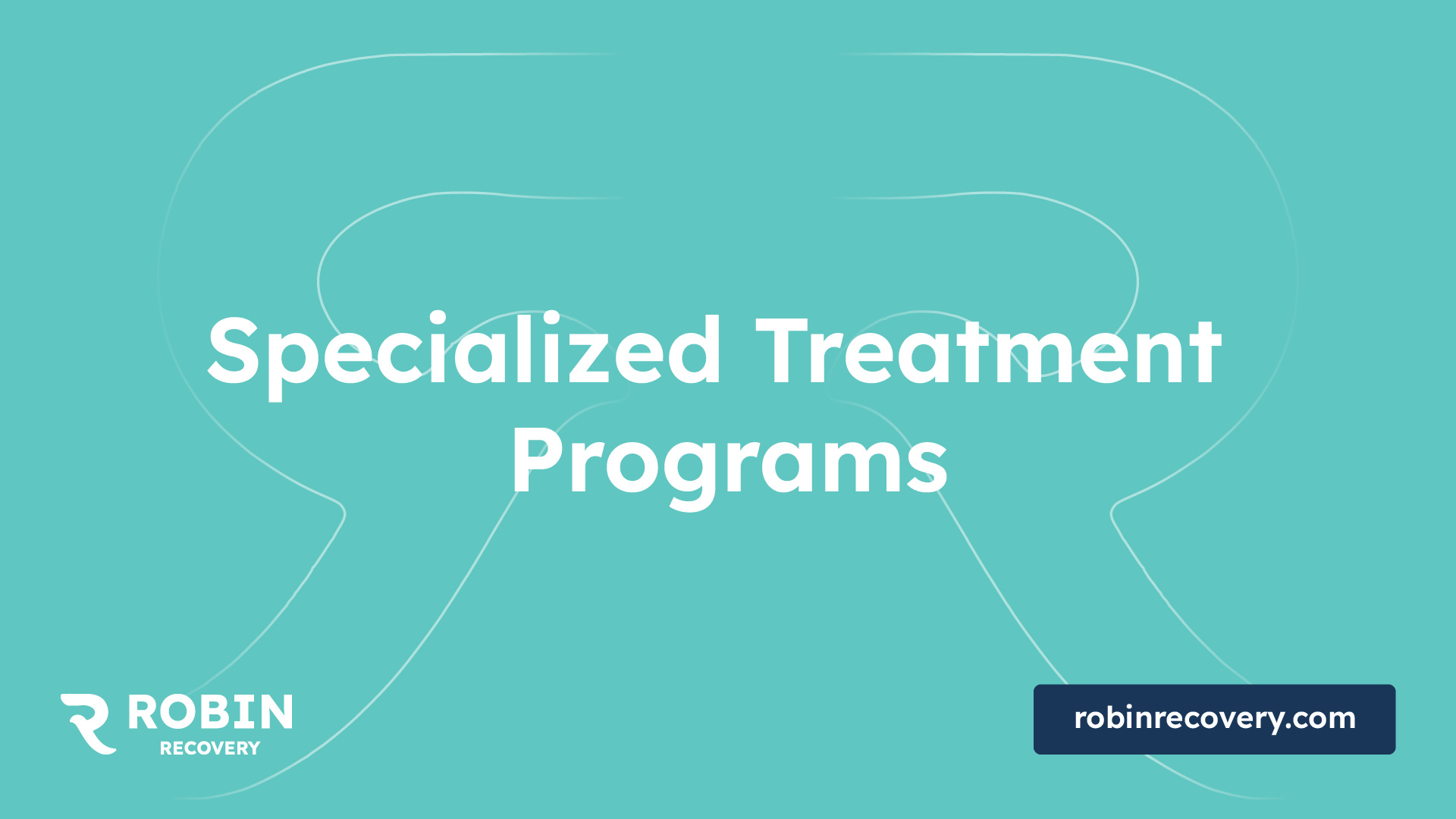Best Drug Rehab Centers for Lasting Recovery


Finding the Best Drug Rehab Centers
When seeking treatment for drug addiction, finding the right drug rehab center is crucial for a successful recovery journey. With numerous options available, it's important to consider certain factors that can help identify the best drug rehab centers. Two key considerations in this process are the importance of accreditation and the impact it has on treatment outcomes.
Importance of Accreditation
Accreditation is a vital aspect to consider when selecting a drug rehab center. Accreditation signifies that a facility has met specific standards of quality and safety set by accrediting bodies. It ensures that the center follows best practices and provides evidence-based treatments for substance abuse.
Unfortunately, not all addiction treatment programs are accredited. According to a national survey of substance abuse treatment services, over half (56.9%) of addiction treatment programs in the United States were not accredited facilities.
Choosing an accredited drug rehab center provides several benefits. Accredited centers adhere to rigorous standards and undergo regular assessments to maintain accreditation. These standards cover areas such as program effectiveness, safety, and quality of care. By selecting an accredited center, you ensure that you or your loved one receives treatment from a facility that meets industry standards.
Impact of Accreditation on Treatment
Accreditation has a direct impact on treatment outcomes. In a study conducted by CARF-accredited programs, it was found that these facilities experienced a 26% increase in the number of people served each year and a 37% increase in conformance to quality standards [1]. This highlights the quantitative benefits of accreditation.
Accreditation also provides assurance that the drug rehab center has qualified staff and utilizes evidence-based treatment approaches. It indicates that the center has comprehensive policies and procedures in place to ensure the safety and well-being of its clients.
To verify if a drug rehab center is accredited, you can utilize resources such as The Joint Commission's search tool. The Joint Commission is one of the leading accrediting bodies in the field of addiction treatment. Their search tool allows you to find substance use disorder treatment providers that are accredited by The Joint Commission, ensuring compliance with national standards for safety and quality through comprehensive reviews every three years [2].
By prioritizing accreditation when choosing a drug rehab center, you can have confidence that the facility adheres to recognized standards and provides high-quality care for lasting recovery. Accreditation serves as an important indicator of a center's commitment to excellence and can help guide you in finding the best drug rehab center for your needs.

Notable Drug Rehab Centers
When seeking the best drug rehab centers for lasting recovery, it's important to consider various factors such as accreditation, treatment approaches, and success rates. In this section, we will highlight three notable drug rehab centers: The Recovery Village, American Addiction Centers, and National TASC.
The Recovery Village
The Recovery Village is a renowned network of addiction treatment centers with locations across the United States. They offer a comprehensive range of evidence-based treatment programs to address substance abuse and co-occurring mental health disorders. The Recovery Village is licensed through state authorities, ensuring compliance with regulations and guidelines. All facilities in their network are accredited by the Joint Commission, a widely recognized accrediting body in the healthcare industry. Their commitment to accreditation reflects their dedication to quality care and continuous improvement [1].
American Addiction Centers
American Addiction Centers (AAC) is a leading provider of addiction treatment services in the United States. With multiple treatment facilities throughout the country, AAC offers personalized treatment programs to address various substance use disorders. They emphasize evidence-based therapies and a multidisciplinary approach to help individuals achieve lasting recovery. AAC is committed to providing quality care and is accredited by the Joint Commission. Their comprehensive treatment options, experienced staff, and commitment to accreditation make them a notable choice for individuals seeking effective addiction treatment [3].
National TASC
National TASC (Treatment Accountability for Safer Communities) is an organization dedicated to providing treatment and support services to individuals involved in the justice system who struggle with substance abuse. National TASC collaborates with various drug rehab centers nationwide to provide evidence-based treatment programs. One notable drug rehab center affiliated with National TASC is the Betty Ford Treatment Center. Founded in 1982, the Betty Ford Treatment Center specializes in the treatment of alcohol and drug addiction, opiate detox, psychiatric services, and virtual services. With 17 locations across the United States, the Betty Ford Treatment Center is accredited by the Joint Commission, ensuring high-quality care for individuals seeking recovery [4].
By considering these notable drug rehab centers, individuals can explore options that prioritize accreditation, evidence-based treatment approaches, and a commitment to helping individuals achieve lasting recovery. It is important to further research and evaluate these centers based on individual needs, treatment preferences, and location to make an informed choice in the pursuit of long-term recovery.

Specialized Treatment Programs
When it comes to drug rehab, specialized treatment programs play a crucial role in helping individuals overcome addiction and achieve lasting recovery. Two commonly utilized types of treatment are behavioral therapy and cognitive behavioral therapy (CBT).
Behavioral Therapy
Behavioral therapy is one of the most commonly used types of treatment for addiction and is frequently incorporated into substance rehabilitation programs. This therapy focuses on identifying and modifying unhealthy behaviors and thought patterns that contribute to substance abuse [5]. The goal of behavioral therapy is to help individuals develop healthier coping mechanisms and improve their decision-making skills.
During behavioral therapy sessions, individuals work closely with trained therapists who provide guidance and support. Therapists may use various techniques such as cognitive restructuring, contingency management, and motivational interviewing to help individuals address their addiction and make positive changes in their lives.
By promoting self-reflection and self-awareness, behavioral therapy helps individuals understand the underlying causes of their addiction and learn effective strategies to avoid relapse. This form of therapy can be conducted in both individual and group settings, providing individuals with a safe and supportive environment to explore their thoughts, emotions, and behaviors.
Cognitive Behavioral Therapy (CBT)
Cognitive behavioral therapy (CBT) is another highly effective treatment approach for substance misuse. Research indicates that CBT has a positive lasting impact on patients, with the skills learned during therapy often continuing to benefit individuals beyond the completion of treatment.
CBT focuses on identifying and challenging negative thought patterns and beliefs that contribute to addictive behaviors. It helps individuals recognize and replace maladaptive thoughts with healthier and more constructive ones. By addressing the underlying cognitive processes associated with addiction, CBT equips individuals with the tools to better manage cravings, develop effective coping strategies, and prevent relapse.
Therapists trained in CBT work collaboratively with individuals to set goals and develop personalized treatment plans. They use various techniques, such as cognitive restructuring, behavioral experiments, and skills training, to help individuals gain insight into their addiction and develop practical strategies for maintaining sobriety.
By integrating behavioral therapy and cognitive behavioral therapy into drug rehab programs, individuals receive comprehensive and evidence-based treatment that addresses the psychological and behavioral aspects of addiction. These specialized treatment programs provide individuals with the tools and support necessary to overcome addiction, make positive changes in their lives, and achieve lasting recovery.
Top Recommended Rehab Centers
When searching for the best drug rehab centers, it's important to consider various factors such as treatment approaches, success rates, and the quality of care provided. Here are five top recommended rehab centers that have gained recognition for their comprehensive treatment programs and positive outcomes.
Banyan Treatment Center
Located in Boca Raton, Florida, the Banyan Treatment Center offers a 24-hour residential intensive inpatient and outpatient program. Since its establishment in 2017, the center has garnered a reputation for its effective treatment methods. Notably, Banyan Treatment Center has treated several celebrities, including Mike "The Situation" Sorrentino. For those seeking a personalized and comprehensive approach to recovery, Banyan Treatment Center is a notable choice.
Journey Pure
Journey Pure has built a strong reputation for providing effective treatment in three states: Tennessee, Kentucky, and Florida. With a total of 12 clinics and 6 rehab centers, Journey Pure boasts an impressive 84% success rate. Over 6,000 individuals have shared stories of their accomplishments through the treatment center. Journey Pure offers an accountability app that allows residents to track and record their progressions, enhancing the overall recovery experience.
Landmark Recovery
Founded in 2016, Landmark Recovery operates several locations across the United States. The center focuses on individualized health recovery care, providing comprehensive support to those seeking recovery from substance abuse. Landmark Recovery's expert staff are highly skilled at preventing overdoses in residents, and the center emphasizes holistic healing through 12-step activities.
Alo House Recovery
With over 75 years of experience, Alo House Recovery is a leading provider of top-rated drug and alcohol behavioral treatment. Their 74-bed residential facility offers comprehensive care to individuals seeking recovery. Alo House Recovery is known for providing personalized treatment plans and utilizes innovative approaches to address addiction. The facility also offers convenient Skype and Facetime consultations with nurses, doctors, and psychologists, ensuring ongoing support for individuals during their recovery journey.
Betty Ford Treatment Center
Established in 1982, the Betty Ford Treatment Center specializes in the treatment of alcohol and drug addiction, opiate detox, psychiatric services, and virtual services. With 17 locations across the United States, the center is accredited by the Joint Commission, ensuring high standards of care. The Betty Ford Treatment Center has a long-standing reputation for its comprehensive treatment programs and commitment to helping individuals achieve lasting recovery.
Choosing the right rehab center is a crucial step towards lasting recovery. These top recommended rehab centers have proven track records of success and offer comprehensive treatment programs tailored to individual needs. However, it's important to research and evaluate each center based on your unique circumstances and requirements to make an informed decision.
Effective Therapy Approaches
When it comes to drug rehabilitation, effective therapy approaches play a crucial role in helping individuals on their path to recovery. Different therapy methods can address various aspects of addiction, provide support, and promote overall well-being. In this section, we will explore some common and effective therapy approaches utilized in drug rehab centers.
Psychotherapy
Psychotherapy, also known as talk therapy, is a fundamental component of drug rehab treatment. This therapy approach involves one or more therapeutic interventions aimed at treating psychological problems or disorders. Through regular sessions with a trained therapist, individuals can explore their thoughts, emotions, and behaviors in a safe and supportive environment.
Psychotherapy focuses on increasing overall mental health and well-being. It can help individuals develop healthier coping mechanisms, improve self-esteem, and enhance interpersonal relationships. Research shows that three out of four people experience improvement after undergoing psychotherapy [6].
Acupuncture
Acupuncture, a practice dating back to ancient China, has gained recognition as a complementary therapy in drug rehab centers. This technique involves the insertion of thin needles into specific points along the body to treat various health issues. In the context of drug rehab, acupuncture is often used to alleviate symptoms of opioid withdrawal.
Acupuncture sessions can help prevent cravings, increase participation in long-term treatment programs, and leave patients with a sense of relief. Some individuals may experience sensations such as soreness, numbness, or heaviness during or after a session. This therapy approach can be an effective addition to the comprehensive treatment plan provided by drug rehab centers [6].
Yoga
Yoga, a centuries-old practice that combines physical postures, breathing exercises, and meditation, has shown therapeutic benefits for individuals in drug rehab. This holistic approach to healing is recommended for individuals experiencing anxiety, stress, muscle tension, ADHD, and PTSD.
Engaging in regular yoga sessions can help regulate stress hormones, release endorphins, quiet the mind, and improve feelings of control over the body. The combination of poses and controlled breathing techniques can promote relaxation and overall well-being. Many drug rehab centers incorporate yoga into their treatment programs to support individuals on their journey to recovery [6].
Music Therapy
Music therapy is a creative and expressive therapy approach that utilizes music to address emotional and psychological challenges associated with addiction. It involves various activities such as writing lyrics, playing instruments, dancing, and listening to music. These therapeutic exercises encourage individuals to express their emotions, provide motivation for continuing treatment, and serve as a source of inspiration.
Music therapy can be particularly beneficial for individuals in drug rehab, helping them explore their feelings, reduce stress and anxiety, and develop healthy coping strategies. Engaging in music-related activities can be a powerful tool for self-expression and healing [6].
Group Therapy
Group therapy is a widely used and effective therapy approach in drug rehab centers. This form of therapy involves individuals coming together in a supportive and non-judgmental environment to share their experiences, challenges, and successes related to addiction and recovery.
Group therapy provides a sense of community and removes feelings of isolation. It allows participants to see others' recovery processes and learn from their experiences. The group dynamic fosters a culture of recovery, encouraging individuals to stay sober and support one another throughout their journey. Participating in group therapy can be a transformative and empowering experience for individuals in drug rehab [6].
Effective therapy approaches like psychotherapy, acupuncture, yoga, music therapy, and group therapy are essential components of comprehensive drug rehab programs. These approaches address various aspects of addiction and provide individuals with the tools and support they need for lasting recovery. By incorporating these therapy methods into treatment plans, drug rehab centers can help individuals achieve positive and sustainable changes in their lives.
Key Factors of Quality Rehab Centers
When seeking the best drug rehab centers, there are several key factors to consider. These factors play a crucial role in ensuring a comprehensive and effective treatment experience for individuals seeking recovery.
Accreditation and Licensing
Accreditation and licensing are important indicators of a quality rehab center. Accreditation from reputable organizations, such as The Joint Commission, demonstrates that the facility meets rigorous standards of care and safety. Facilities that undergo the accreditation process often experience an increase in the number of people served and a higher level of conformance to quality standards [1]. The Joint Commission provides a search tool to find accredited substance use disorder treatment providers, ensuring compliance with national standards for safety and quality. State licensing is also essential, as it ensures that the facility operates within the legal and regulatory requirements set by the state.
Individualized Treatment Plans
Effective rehab centers recognize that each individual's journey to recovery is unique. They develop individualized treatment plans tailored to the specific needs of each patient. These plans take into account factors such as the severity of addiction, co-occurring mental health disorders, and personal circumstances. Individualized treatment plans may involve a combination of therapies, counseling, support groups, and other evidence-based approaches to address the specific needs of the individual.
Qualified Staff
Quality rehab centers employ a team of qualified professionals who specialize in addiction treatment. These professionals may include addiction counselors, therapists, medical doctors, psychiatrists, and nurses. The staff should have the necessary credentials, licensure, and experience in addiction treatment. Their expertise and compassionate approach contribute to the overall effectiveness of the treatment program.
Comfortable Living Conditions
A good rehab center should provide comfortable living conditions that promote a sense of well-being and dignity. Facilities should offer clean, bright, and cheerful environments, similar to other medical settings. Creating a dignified and respectful atmosphere helps individuals regain self-respect and dignity during their recovery journey [7]. Comfortable living conditions can positively impact an individual's overall experience and contribute to their motivation to stay in treatment.
Success Rates and Reviews
When researching rehab centers, it's important to consider their success rates and reviews. While success rates can vary and may not be the sole determinant of a center's effectiveness, they can provide insights into the center's track record. Reviews and testimonials from former patients and their families can offer valuable perspectives on the quality of care provided. However, it's important to approach reviews with caution and consider multiple sources to form a well-rounded understanding.
By considering these key factors, individuals can make informed decisions when selecting a rehab center for themselves or their loved ones. Accreditation and licensing, individualized treatment plans, qualified staff, comfortable living conditions, and success rates and reviews all contribute to the overall quality and effectiveness of a rehab center in promoting lasting recovery.
References
[3]: https://www.newsweek.com/rankings/americas-best-addiction-treatment-centers-2023
[4]: https://nationaltasc.org/best-drug-rehab-centers/
[5]: https://americanaddictioncenters.org/therapy-treatment
[6]: https://www.rehabspot.com/treatment/clinical/types-of-therapy/
[7]: https://www.recoveryanswers.org/resource/effective-addiction-treatment-what-makes-a-good-addiction-treatment-program/
